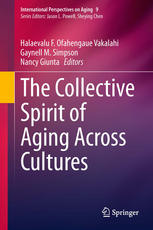

Most ebook files are in PDF format, so you can easily read them using various software such as Foxit Reader or directly on the Google Chrome browser.
Some ebook files are released by publishers in other formats such as .awz, .mobi, .epub, .fb2, etc. You may need to install specific software to read these formats on mobile/PC, such as Calibre.
Please read the tutorial at this link: https://ebookbell.com/faq
We offer FREE conversion to the popular formats you request; however, this may take some time. Therefore, right after payment, please email us, and we will try to provide the service as quickly as possible.
For some exceptional file formats or broken links (if any), please refrain from opening any disputes. Instead, email us first, and we will try to assist within a maximum of 6 hours.
EbookBell Team

4.3
48 reviewsThe collective, inclusive, and intersectional framework used in this book speaks to the significance of understanding aging across diverse cultures from multiple perspectives, but still as a shared human experience. The underlying message of the book is that although we are unique and different in our aging processes, we are ultimately connected through this physical, mental and spiritual experience of aging. Thus, regardless of whether we are service providers, service recipients, educators or merely fellow human beings, it is important that we approach the aging experience through a collective lens for discovering and sharing resources as we age; honoring the past while simultaneously accepting that the future is here. A few select examples of key findings from this collaborative work are as follows. First, despite progress in the field, certain issues remain to be addressed including the challenges of racism and sexism, mistreatment, the digital divide, poverty, and other social and economic crises in urban and rural communities as they relate to our aging population. Second, the need for sustaining a sense of independence among the aged and interdependence among supportive systems is warranted. Third, our elders continue to benefit from culturally competent services community-based health interventions and social services that addresses normative and emerging challenges for them. Fourth, spirituality in both indigenous and contemporary perspectives remains important for our elders’ development and quality of life.